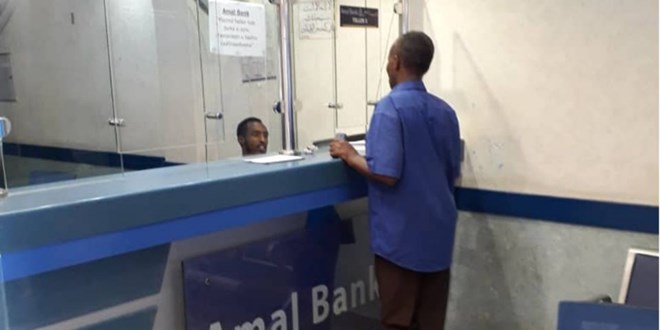
Sunday October 11, 2020

Somalia’s money remittance firm Amal Express says it is open to an audit by regulators to prove it has not aided money laundering for purchase of illegal arms.
The company, which runs the semi-formal transfer service known as Hawala in most East African countries, says it has always followed local laws and standards, including limits on the amounts of money to be sent by individuals.
“We reiterate our long-standing commitment to upholding our corporate integrity and full compliance with laws and regulations in all the countries we operate in,” Guleid Jama, the firm’s Chief Executive Officer, said in a statement on Friday.
“We have invited the Central Bank of Somalia, our regulators, to audit our internal systems regarding the alleged dealings with blacklisted persons. We expect the findings of the independent audit would be made public.”
With Somalia under an arms embargo since 1993, any purchases of arms could be both illegal in the country and the region, given the UN Security Council's resolutions that are binding to all member states where Amal is licensed to operate.
Thresholds surpassed
The report titled "Following the Money", authored by former UN Expert panellist for Somalia, Jay Bahadur, said illegal payments were as high as $3.7 million between 2014 and 2020.
It also said that Somalia’s port city of Bossaso in Puntland state was the origin of most of the illegal payments to arms sellers in Yemen.
Some of the payments reportedly went above the $10,000 threshold, where, normally, the handling firm should raise red flags and report to authorities.
Amal was particularly accused of handling cash sent to Abdulrab Salem al-Hayashi, who was in October 2017 sanctioned by the US Treasury for “assisting in, sponsoring, or providing financial, material or technological support for, or financial or other services to or in support of” Al-Qaeda-linked terror groups in the Arabian Peninsula.
Amal rejected claims it transferred money to such an individual and refutes a copy of the receipts published in the report.
“The document was not authentic. It was a very poor imitation of our real receipts and had several inconsistencies and formatting mistakes. We proved [this] to the author of the report when he sought to establish its authenticity, before the report's publication," the CEO said.
“As we speak, auditors from the Somalia Central Bank are in Bossaso and they have been given adequate access to our systems to verify for themselves that our systems have stringent checks,” Jama told the Nation when asked about the company’s know-your-customer rules."
Little scrutiny
Somalia’s Hawala system has been influential in reaching millions of people who remain largely unbanked. According to local regulations, individuals can send or receive up to $300 without undergoing rigorous background checks.
But Somalia doesn’t have national ID data and the Global Initiative report claimed some senders and receivers may have used variations of their names to dodge scrutiny.
Amal officials told the Nation they cooperate with authorities and use a system called World-Check to flag transactions involving persons listed as high risk.
The World Bank estimates that just about 15 per cent of the 15.5 million Somalis have bank accounts, leaving the Hawala system as the main service for transmitting the estimated $1.3 billion sent by the Somali diaspora every year.
It advised the Somali government to begin developing a robust identification system to eliminate the loopholes.
“An effective identification system would help narrow the significant financing gap in Somalia and address de-risking issues,” it said in a report titled "Rapid Growth in Mobile Money".
“Better mobile money regulation and a robust identification system are closely connected and need to be developed in parallel.”